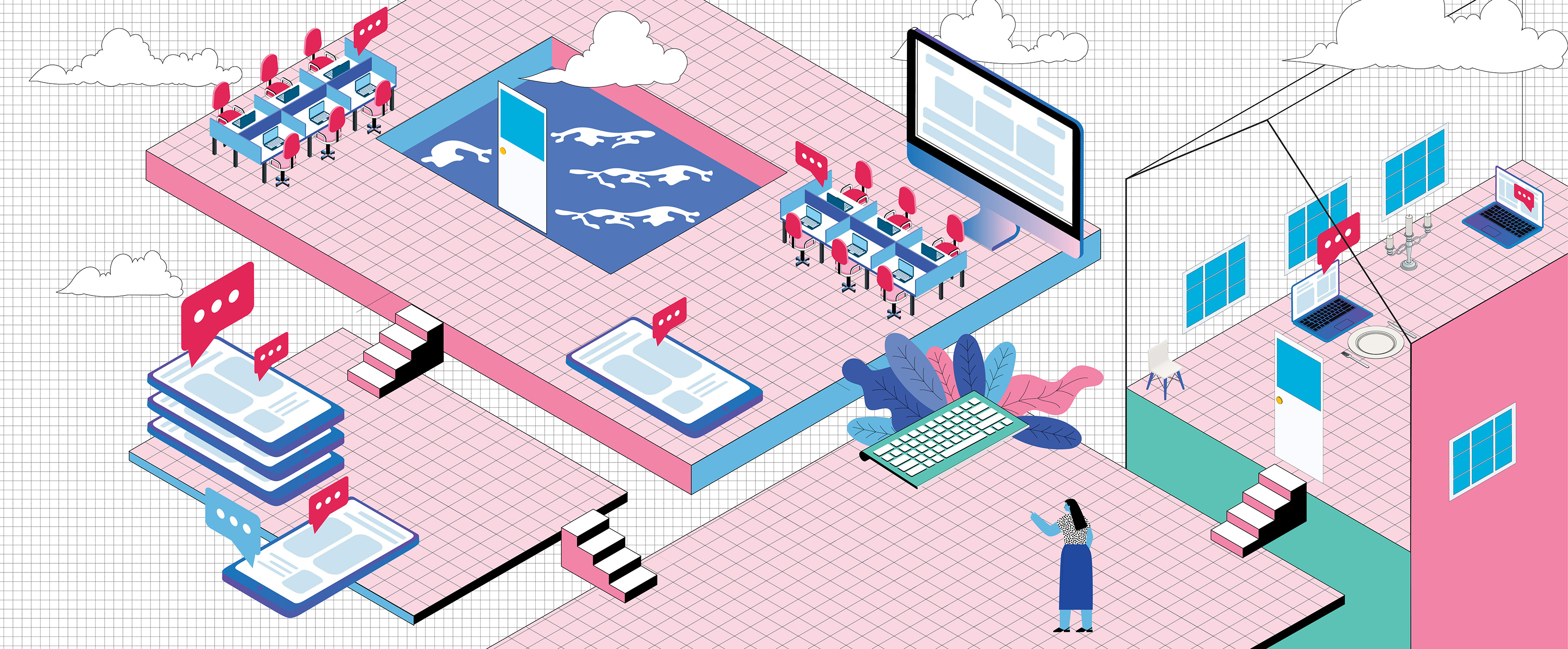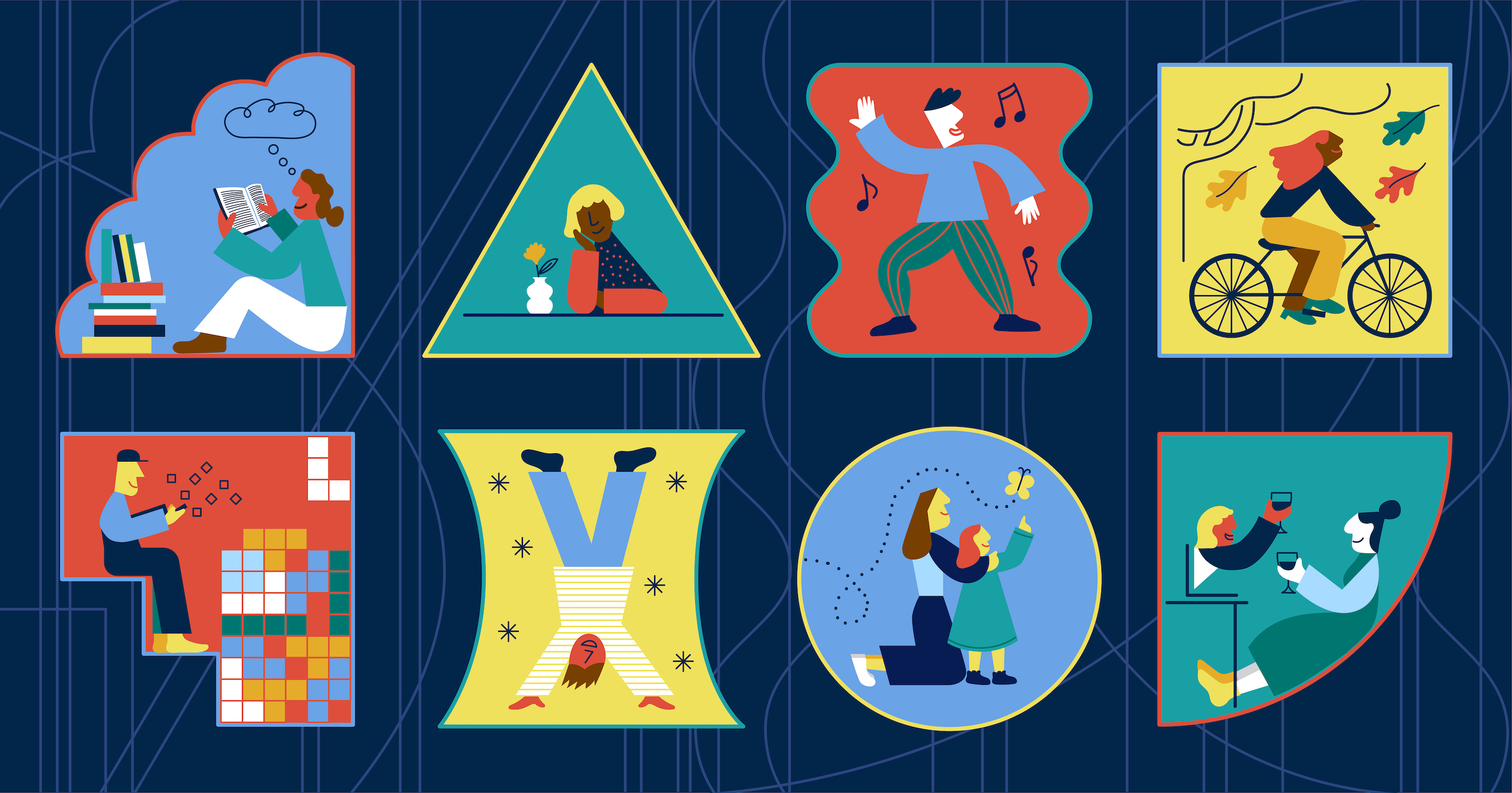How workplace rituals can strengthen connection in a virtual community
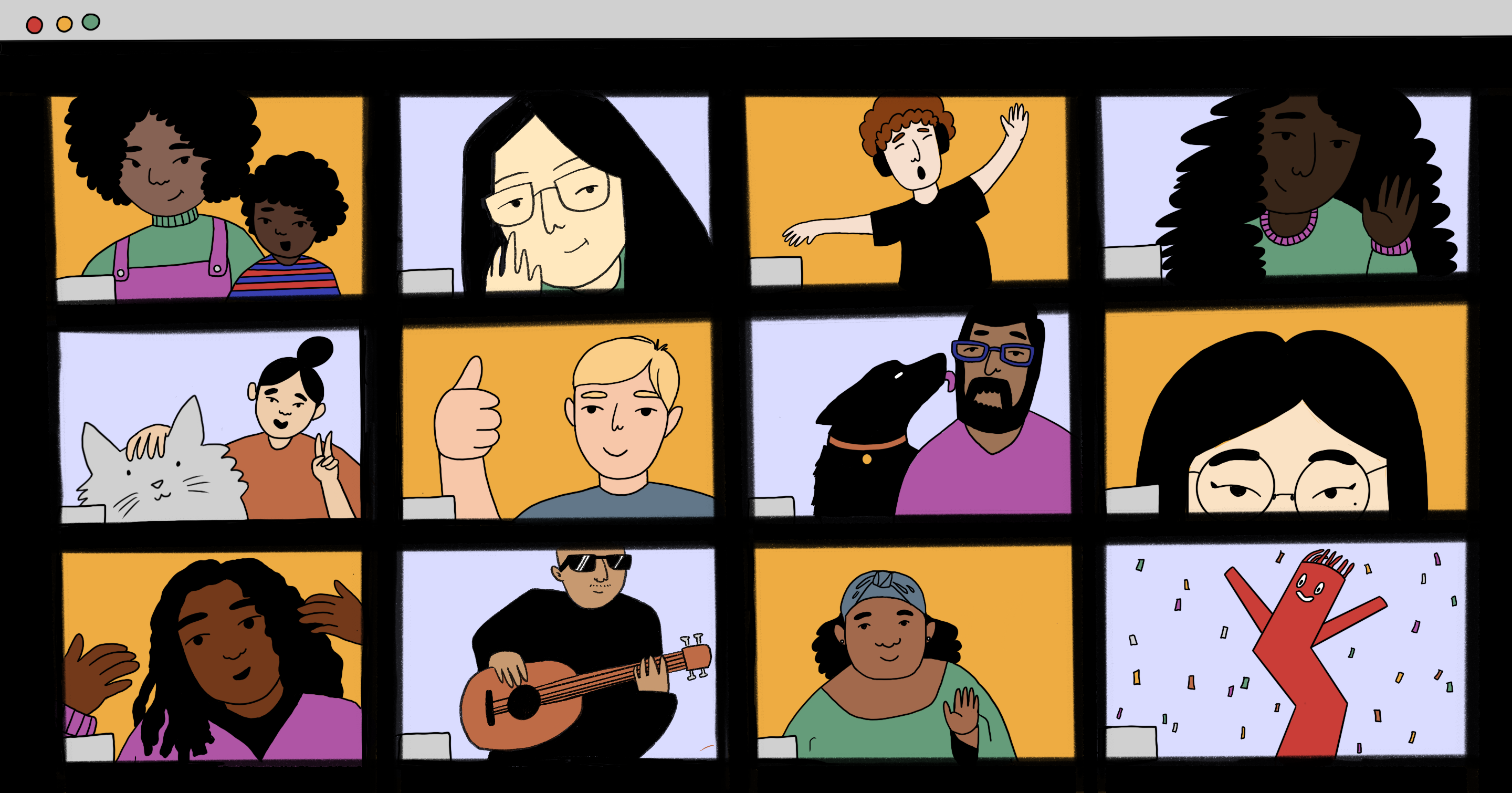
When COVID first sent office workers remote, many companies struggled with the decentralization and loneliness of virtual work. Thankfully, at the IDEO Chicago studio we had a secret weapon we knew would help us bring serendipity, joy, and creativity into the uncharted landscape of perpetual videoland: rituals.
At their core, rituals are intentional actions that follow a particular repeatable pattern. Certain words or phrases, symbolic props, and patterned movements are used to elevate everyday moments into meaningful and memorable experiences. Rituals have a unique ability to make intangible values and beliefs concrete because they bridge the mind and the body, the two ways humans process and make sense of the world. We use them all the time in religion, politics, and sports to help groups navigate change, form a shared sense of identity and purpose, and enhance performance—but we forget they can also be incredibly powerful at work.
In the past year, we’ve had a lot of time to learn about rituals for the virtual world. Some of IDEO Chicago’s favorites are featured in a new book by Stanford’s Ritual Design Lab called “Rituals for Virtual Meetings: Creative Ways to Engage People and Strengthen Relationships.” The book highlights remote rituals from companies around the world that help with focus, connection, flow, and more. Here are some of our favorites.
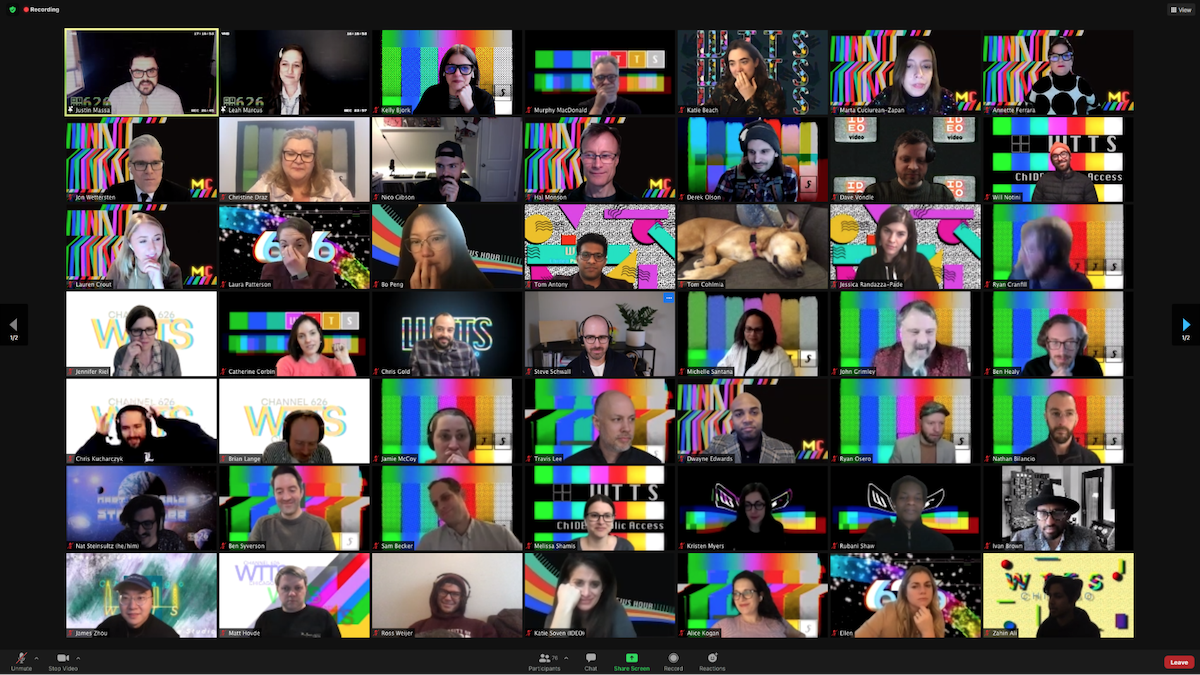
Embrace the cacophony
For years, all-hands Monday Lunch Meetings (MLMs) have been an important weekly ritual for sharing inspiration, information, and project work over a meal at IDEO studios across the globe. When we first entered round-the-clock remote life, presenters were faced with an intimidating, feedback-free void. It felt cold and awkward, and nothing at all like the MLMs we knew and loved.
To fix that, we identified that the MLM routine itself wasn’t enough—we needed to design moments of consistent virtual connection to revive the feeling of the shared experience. So we sped up the pace of shares, encouraged side conversations in chat, added sound effects like air horns through a creative hack using DJ software, and fully leaned into the awkward audio latency tendencies of video calls with our monthly singing of “Happy Birthday.” By embracing the cacophony, we subverted the silence and saved each other from being isolated in the void, retaining some semblance of consistency and communal spirit during an otherwise unpredictable and lonely time.
Find serendipity through structure
When we were together in our studio, we could rely on the walls and furniture to create safe boundaries and immersive experiences. But in a video room, space can feel infinite and spontaneous conversation challenging. We realized we needed to design specifically for serendipitous encounters.
One of the first events we created was the ChIDEO Variety Hour. An event inspired by improvisational, slapstick variety shows (think The Muppet Show and old telethons), it’s meant to showcase the range of talent and work being done in the studio. It feels spontaneous and whimsical thanks to two constraining factors: First, presenters sign up in advance for “on-screen time”—from as little as one minute to as long as 30. Second, two hosts write a script for the show and get robust “back of house” support from a team that monitors live technical aspects like time keeping or moderating chat.
At the first Variety Hour we had a research share from recent project work, an intermission dance party, and one minute of screaming, to name a few examples. It was the most participatory virtual event we had ever had, and Variety Hour has since become a beloved monthly ritual in our digital studio.
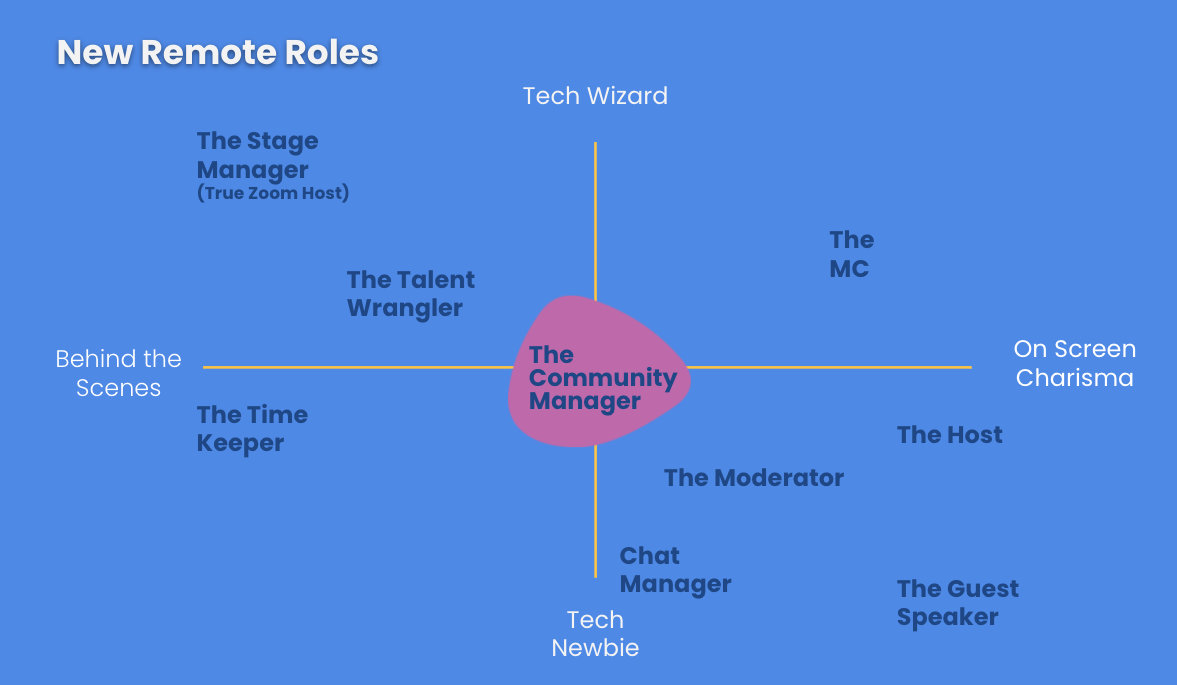
Make the most of digital tools
When everyone works remotely, the physical distance becomes compounded with digital invisibility. The right ritual can manufacture proximity, rebuild trust and connection, and mimic the ebb and flow of a good house party. This is where digital tools can shine.
The Breakout Room function is meant for subdividing large webinar audiences, but we asked, what if it was used for something like speed dating? Breakout Rooms can be randomized, sized in different ways, and attendees can even move between them on their own. We harness these features for an icebreaker game called “Chance Encounters of the Zoom Kind.” By randomly placing participants in different breakout rooms together, keeping the duration a surprise, and providing thought-provoking conversation prompts to break the ice, we recreated casual collisions for the digital office. In some cases, it was the first time people had seen each other since the lockdown began, and it provided much needed reconnection, randomness, and joy.
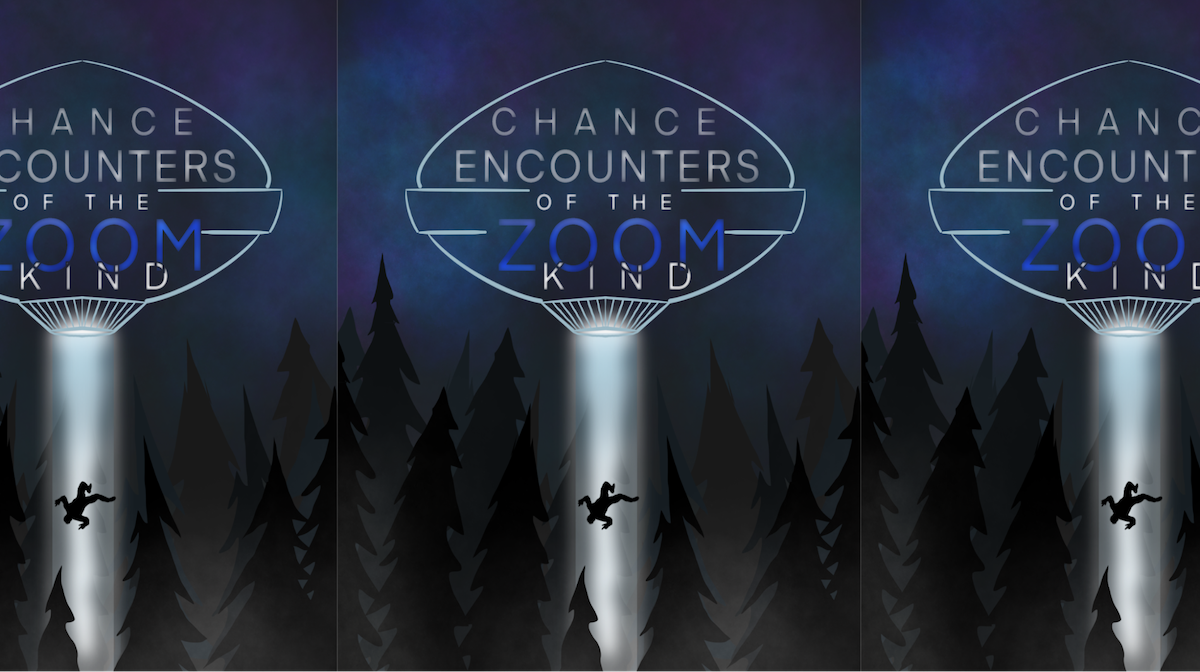
Developing your own rituals
If you’re looking to decrease the stress that accompanies change, create conditions that kickstart innovation, inspire greater trust and collaboration among coworkers, or turn the mundane into the memorable, consider creating your own workplace rituals from scratch—or turn to the dozens outlined in Rituals from Virtual Meetings for inspiration.
Words and art


Subscribe

.svg)








